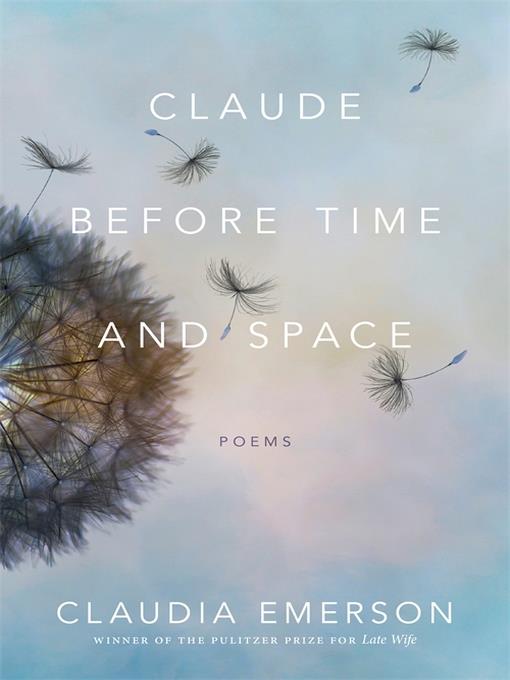
Claude before Time and Space
Poems
کتاب های مرتبط
- اطلاعات
- نقد و بررسی
- دیدگاه کاربران
نقد و بررسی

July 16, 2018
In this elegant, posthumously published disquisition on the relationship between speech and silence, Emerson (The Opposite House) allows all that is left unsaid to complicate her skillful renderings of grief, mortality, and transcendence: “it disappears/ in the aftermath—/ or in the midst.” As the book unfolds, Emerson’s spare lyricism speaks to the fragmentary nature of memory, which is persistently at odds with the human impulse toward narrative. “I turn the children/ out naked into the woods/ the humid understory thicket/ of switches I am never more/ than three meals from the nothing/ I tell them there is,” she writes. These ephemeral, understated poems inhabit a wide range of forms, spanning traditional tercets as well as new inventions and hybrids that make use of the page as a visual field. White spaces open Emerson’s lines, making visible the tension between inchoate experience and the desire for a clearly defined arc. The book is also filled with self-reflexive moments in which each line reads as a deconstruction of the book’s own ruptures and formal leaps: “quiet as the birdless/ tree of ice that bore/ the peaches there is no mess/ there ought to be.” Emerson’s consideration of memory and its instability is self-aware and finely crafted.

























دیدگاه کاربران